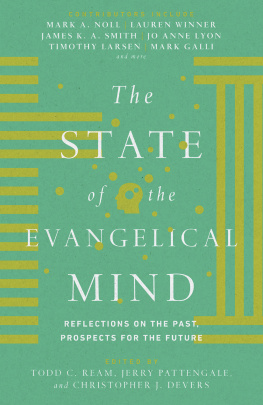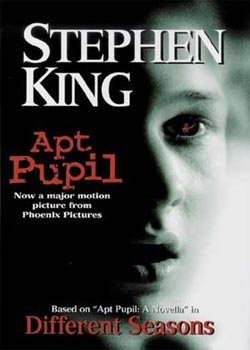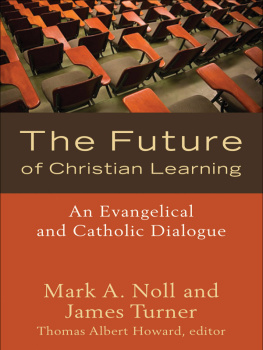Sommaire
Pagination de l'dition papier
Guide
The
STATE
of the
EVANGELICAL
MIND
REFLECTIONS ON THE PAST,
PROSPECTS FOR THE FUTURE
EDITED BY
TODD C. REAM, JERRY PATTENGALE,
AND CHRISTOPHER J. DEVERS
FOREWORD BY
RICHARD J. MOUW
InterVarsity Press
P.O. Box 1400, Downers Grove, IL 60515-1426
ivpress.com
2018 by Todd C. Ream, Jerry A. Pattengale, and Christopher J. Devers
All rights reserved. No part of this book may be reproduced in any form without written
permission from InterVarsity Press.
InterVarsity Pressis the book-publishing division of InterVarsity Christian Fellowship/USA, a
movement of students and faculty active on campus at hundreds of universities, colleges, and schools
of nursing in the United States of America, and a member movement of the International Fellowship
of Evangelical Students. For information about local and regional activities, visit intervarsity.org.
Scripture quotations, unless otherwise noted, are from The Holy Bible, English Standard Version,
copyright 2001 by Crossway Bibles, a division of Good News Publishers. Used by permission.
All rights reserved.
Cover design: David Fassett
Interior design: Daniel van Loon
Images: head silhouette: kolae / iStock / Getty Images Plus
fine grained paper: GOLDsquirrel / iStock / Getty Images Plus
ISBN 978-0-8308-7408-8 (digital)
ISBN 978-0-8308-5216-1 (print)
This digital document has been produced by Nord Compo.
TO JOHN AND WENDY WILSON
Friends to all who are committed to the
cultivation of the evangelical mind
FOREWORD
RICHARD J. MOUW
AS I READ THE WONDERFULLY insightful essays in this book, I was reminded of an observation that the late Rod Sawatsky was fond of making about evangelical higher education. We give much attention, he would say, about the relationship between faith and learning, but we hear almost nothing about the relationships of hope and love to learning.
The explorations in this book make good headway in addressing Rods complaint. And this is welcome. That we need to keep giving sustained attention to the appropriate venues and formats for faith and learning discussions is underscored by the fact that this fine volume is dedicated to John and Wendy Wilson. The Books & Culture community that they have served so marvelously over the past couple of decades has providedand I say this with deep personal gratitudea powerful nurturing force for the ongoing development of a robust evangelical mind.
When I started my career in the evangelical academy a half-century ago, scholars of evangelical conviction were pretty much on the defensive against the overt anti-intellectualism that was widespread in the evangelical movement. Nor did we get much respect for our scholarly efforts from the larger Christian academy. As my colleague Marianne Meye Thompson put it, many of her teachers representing the neo-evangelicalism birthed in late 1940s approached mainline academics in the spirit of Ill call you a Christian if you will call me an intellectual!
Anti-intellectualism was still around, of course, when Mark Noll wrote his much-needed 1995 jeremiad, The Scandal of the Evangelical Mind. And, to be sure, it has not disappeared. But this book provides abundant evidence that evangelical scholars have now made their mark in the academya clear case in point is that Harvard Divinity School not only has an endowed professorship in evangelical thought, but the present occupant of that chair is the schools dean. And while I am on the subject of Harvard, a personal example. A pastor of a large megachurch once proclaimed boldly to me, a seminary president, If I wanted to learn more about how to be a successful minister, I would go to Harvard Business School long before I would go to Fuller Seminary! I was not pleased to hear that from him, but unlike the anti-intellectuals of my evangelical youth, at least he acknowledged the possibility of getting more formal education!
Cultivating faithful minds, then, is a continuing task. But we cannot ignore the need for mindful hoping and loving. And these days hope and love need a lot of attention in the evangelical academy. Tragically, the evangelical label has become closely linked in the view of many these days to an unloving presence in the public square. This widespread harshness of spirit has many evangelical scholarsfolks who have benefited from what sociologist Alan Wolf announced as The Opening of the Evangelical Mind in his October 2002 Atlantic cover storynow wondering whether intellectual integrity requires that the very label evangelical, and also the network of ministries and institutions that have gone by that name, be abandoned.
Academic faith must be sustained by academic hope and love, and the appearance of this book provides encouraging evidence that the requisite hope and the love are alive. For all the laments expressed in these pages about contemporary evangelicalismand I share them allthere is a profound conviction at work here that there is still much to love. In his concluding remarks, Mark Galli bears witness to the ways that evangelicals are still going to the desolate places of the earth to bring the love of Jesus in word and deed. And those of us who spend time on evangelical campuses and with student ministries know that the themes of evangelical scholarship are taking root in the hearts and minds of many young people who are passionate about the work of the kingdom.
In times past when some evangelicals have worried about spiritual decline in their own ranks, they have sensed a call to work prayerfully for revival and renewal. And when these efforts have met with some success, they have often been accompanied by intellectual seasons refreshing, sent from the Father above. This important book should give us hope that some refreshment is on the way.
INTRODUCTION
THE STATE of the
EVANGELICAL MIND:
TALES of PROSPERITY and PERIL
TODD C. REAM, JERRY PATTENGALE,
and CHRISTOPHER J. DEVERS
IN 1994, WILLIAM B. EERDMANS published one of its most influential titlesMark A. Nolls The Scandal of the Evangelical Mind. This epistle from a wounded lover reflects Nolls desire to hold together two commitments others would often perceive at odds with one another: a love for both the life of the mind and a faith in Christ inspired by the love of fellow evangelicals.
In his historical meditation in which sermonizing and the making of hypotheses vie with more ordinary exposition, Nolls aspiration was nothing short of inciting an intellectual renaissance. Where then would scholars incited to an intellectual renaissance turn for inspiration?
Part of what offered that inspiration came in the pages that followed. Contrary to what was just noted and what Noll claimed to pursue, his own book not only laid bare how such a scandal had come to pass but also how evangelicalism, when properly understood, was not bereft of inspiration. For example, Noll turns to Jonathan Edwards, a defender of the Great Awakening,










